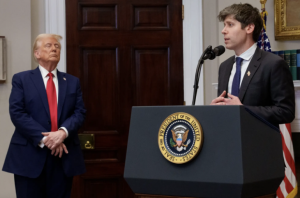Thanksgiving Q&A with professor, USA Triathlon Hall of Famer Scott Tinley
December 1, 2016
Scott Tinley is a former professional athlete, with the title of being a triathlete and a two-time winner of the Hawaii Ironman endurance race. He’s currently an author and is a professor at San Diego State University and California State University of San Marcos.
Q: What does Thanksgiving mean to you as a former professional Triathlete
A: From a selfish viewpoint, the holiday season signified rest and recovery from the previous seven to eight months of difficult racing. But more, I was always so happy to have family time, to take my daughter to the swings and play handball with our son without being concerned about missing a workout. Little things like sleeping in until 7 a.m. felt delicious.
Q: What is your favorite Thanksgiving memory as a child? If sports related, did it happen to shape your choices in pursuing sports professionally?
A: My parents were absolute inclusionists; every kid in the neighborhood–regardless of age, race, gender, size or skill was allowed and welcomed to play in whatever game my dad or mom had created. On the holidays and every day, no child was excluded from our schoolyard games. That egalitarianism shaped and informed the way that I raised our kids in neighborhood play and the basic ideological stance from which I lecture in our class discussions on the state of modern youth sports.
Q: Do you have any special traditions you did as a child that you still do? Sports or non-sports related?
A: I come from a large family, eight siblings, and most of our discussions about our parents, grandparents and great grandparents are framed around physical culture and interesting if not iconic feats of athletic skill. When I talk with a stranger about my dad, I often begin the conversation by noting the fact he pole vaulted 11’ 6” with a bamboo pole into a sawdust pit in 1949.
Q: Have you started any new traditions with your family?
A: Anything “new” that we are doing as a family is simply an extension of how my wife and I were socialized. My professors used to cancel class on the day before Thanksgiving and I do the same. Students are under a lot of stress these days, particularly at CSUSM where so many students are working to pay for their education. An extra day of rest with the family can make a huge difference.
Q: Is there a sport you watch/team you’re always cheering for this time of year and why?
A: I follow the sociocultural effects of many sports very carefully but oddly, don’t seem to be drawn to the success or failure of any particular league, team, or athlete. I do like to watch kids play however, and find great enjoyment in seeing them explore their thoughts, ideas and capabilities before they have to negotiate the many aspects of organized sport.
Q: What would you say you’re most thankful for?
A: I love my job here at CSUSM and also SDSU, and feel fortunate that I was able to make the transition from athlete to academic. I think I was almost 40 years old before I started my doctoral program and there seemed a lot of risk in that occupational choice. But now, every day that I have the opportunity to work with our amazing students, faculty and staff feels like I’m the luckiest person on campus.
Q: What is your favorite part of your Thanksgiving meal?
A: Eating less than my overweight aunts. Oh, and those bold, oaky cabernets.
Q: What’s the athlete’s diet on Thanksgiving and how does it affect your workout routine? Could you provide some good advice?
A: Thanksgiving meals don’t need to be gluttonous feasts that require weeks of dieting to ameliorate. Think “portion control” and patience. If you eat slowly and enjoy the company instead of shoveling the content, you may find yourself satisfied with much less food.
Q: Any words of wisdom for aspiring athletes or something regarding Thanksgiving?
A: Modern sport has become a complicated. Yet at its root there exists the purity of play. One of the challenges is to constantly remind ourselves of this and access the pleasures of sport, not the pain.






